Mobile Device Survey, Spring 2013
- Survey Home
- Methods
- Results
- Implications
Survey results
All non-senior students were invited by email to participate in a mobile device survey. A drawing for an iPad Mini was offered as an enticement.
Students
401 students out of 1061 responded (38%). Juniors and MALS (Masters of Liberal Studies) students were slightly underrepresented.
|
Year in School |
Survey Population |
Respondents |
|
|
Freshman |
316 |
132 |
42% |
|
Sophomore |
351 |
148 |
42% |
|
Juniors |
368 |
113 |
31% |
|
MALS |
26 |
5 |
19% |
|
Other |
0 |
3 |
|
|
Total |
1061 |
401 |
38% |
The distribution of majors closely parallels the distribution of the student body.
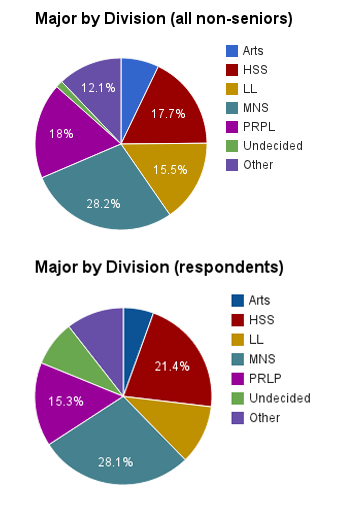
Technology Ownership
Nearly all students own a laptop (8 do not, and 23 own two). 84% own a smartphone and only 16% own a tablet (iPod Touches are counted as “phones” because of their small screen size).
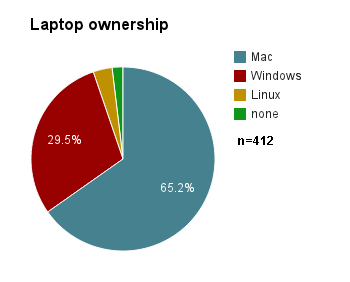
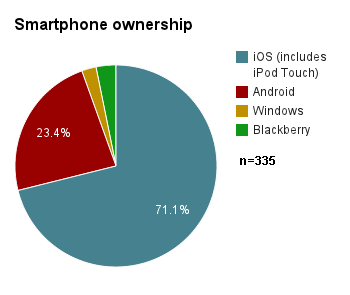
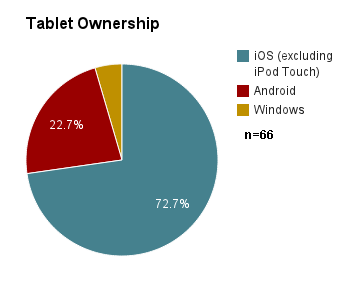
The majority of students (213) own two mobile devices. A few own five.
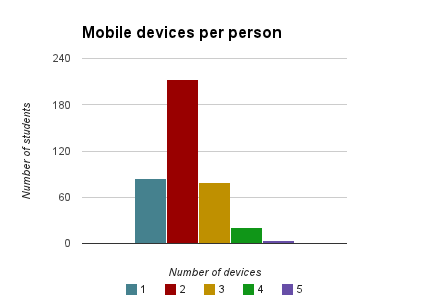
How do Students Use Their Mobile Devices?
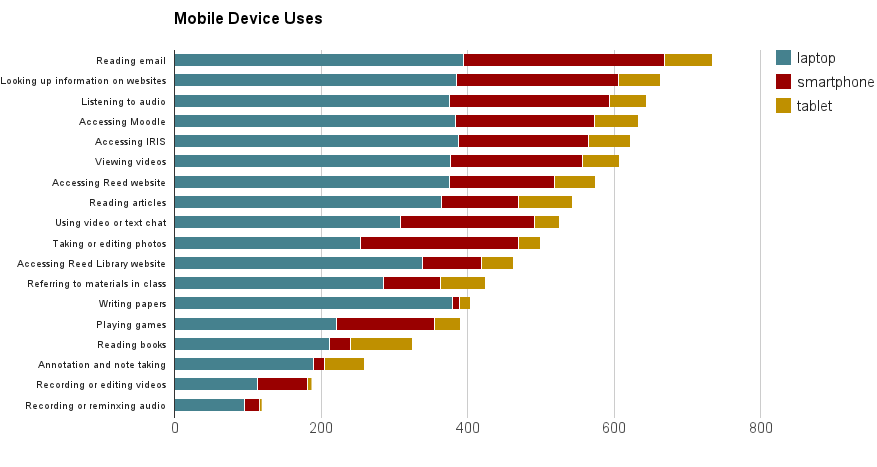
Future Tablet Ownership
Most students who don’t own a tablet already report that they are unlikely to purchase one in the next 6 months.
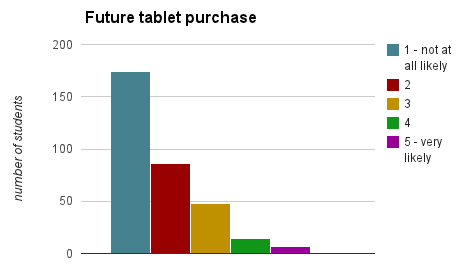
Cost is clearly the predominant factor but many students weigh the costs and benefits. While laptops are seen as indispensable, tablets are more of a luxury item. If the utility of tablets was clearer — more useful academic apps, mobile websites and resources, better wireless performance, and guidance on how to use them for academic work — the cost-benefit analysis could shift the other way.
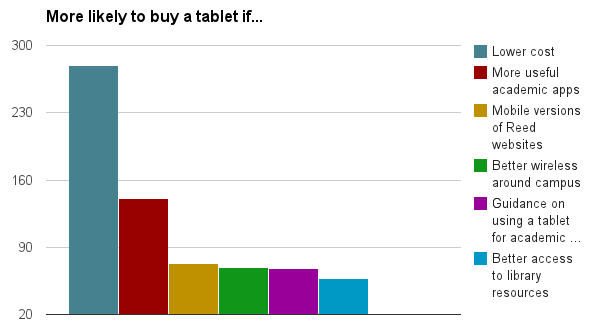
Select student comments
First year math-bio major:
At the moment I have trouble using mobile devices for academic work. I do most of my class work on a desktop computer that I own, but I find that this is partially because most classes at Reed are set up in a way that is not very conducive to the use of laptop computers. I have noticed that a lot of my classmates find the use of tablets to be a lot more helpful. I would be very happy if it became easier to get access to tablets, as they seem like very helpful classroom tools that will rarely be recommended against by professors.
Sophomore bio major:
I am on quite a lot of financial aid and I simply cannot afford any sort of smart device other than a (rapidly aging) laptop. If, in the future, having some sort of tablet/ smart phone became a necessity to succeed at Reed it would be grievously unfair to students in the same financial situation as I am.
That being said, my Organic Chemistry professor teaches lecture from a tablet projected onto a screen and it works really, really nicely and I can access the pdf versions of his annotated lecture notes from my laptop.
Junior environmental studies major:
I do not think people need to own multiple devices that do relatively the same thing. people who have laptops do not need tablets. its a waste/miss-allocation of resources.
Junior art major:
I don't understand if the tablets are supposed to replace the laptops or be an addition to them. If it's the later, it seems to be quite a lot of (very expensive) technology to do undergrad work.
Sophomore english major:
I really dislike reading PDFs on screen and print longer documents. However, I much prefer PDFs that I can print to books on reserve in the library because of convenience.
Sophomore physics major:
I think we need two things to really make mobile devices suitable for academic work -
a) Better wireless connectivity, especially in the dorms
b) A better way to access online resources like Moodle or Iris on a mobile device. Accessing them on my tablet is rather inconvenient, especially because of the automatic signout. It's not too bad on my laptop because I have auto-login extensions, but not so on my tablet. An app would be ideal, but a mobile version of the site would also be useful.